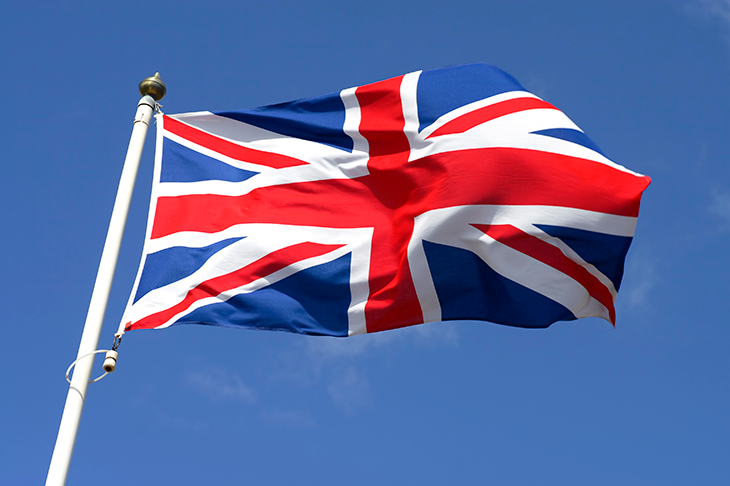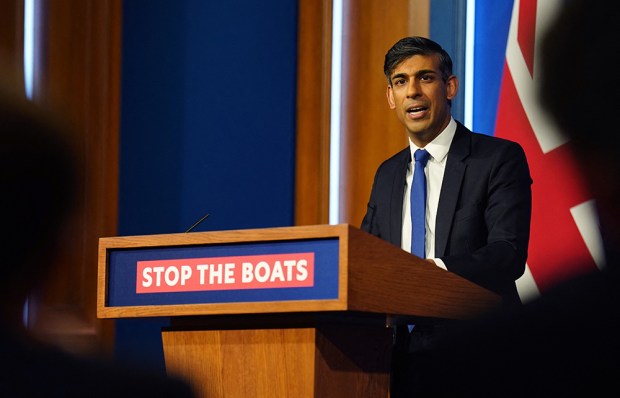The Union faces two simultaneous challenges in Northern Ireland and Scotland that both look set to worsen in the coming years.
In Northern Ireland, the immediate problem is that Brexit has disturbed the fragile balance there. (A more persistent problem is the fact that after the Good Friday agreement, the Democratic Unionist party and Sinn Fein replaced the more moderate Ulster Unionists and the Social Democratic and Labour party as the main Unionist and Nationalist parties.) The debate over where various borders should go has turned into a question of identity.
Unionists argue that the UK government’s agreement to create half a border in the Irish Sea threatens Northern Ireland’s place in the United Kingdom. When Northern Irish Unionists feel they cannot trust the British government, this quickly leads to anger. That mood has already caused the resignation of DUP leader and First Minister Arlene Foster, a moderate in party terms.
The problem for the DUP is that it is losing support in two directions. Hard-liners are moving to the Traditional Unionist Voice, which attacks the DUP for not having stopped the Northern Ireland protocol in the first place. More liberal voters are moving to the Alliance, which doesn’t define itself as a Unionist party. It is difficult to see how the DUP can satisfy both groups of voters.
This crisis explains why the DUP is having the first leadership contest in its history. In crude terms, Edwin Poots — the current Stormont agriculture minister — is the candidate for those who worry most about being outflanked by the TUV. Jeffrey
Donaldson, the party’s Westminster leader, is the candidate for those who worry about the long-term viability of Unionism.
Poots has sat in the executive with Sinn Fein, so it would be wrong to dismiss his pragmatism. But if he won the leadership contest, his social views — he thinks the earth is 6,000 years old and as health minister banned gay men from donating blood — would make the DUP the political wing of evangelical Protestantism. It is difficult to see how this would strengthen the position of Unionism in the decades to come; already 50 per cent of 18- to 44-year-olds support a united Ireland, compared with 43 per cent who want to remain in the UK.
For all this, a border poll in Northern Ireland remains some way off. In Scotland, however, there will soon be a renewed push for a second independence referendum. At the time of writing, the result of the Scottish parliament elections is unknown. But polling indicates there will be a pro-independence majority, if not necessarily a Scottish National party one.
The UK government will reject any request for a Section 30 order, which would give Westminster’s consent for a referendum. It will argue that, as the UK recovers from the effects of the pandemic, now is not the time for another vote. This is the argument for rejecting a referendum that swing voters find most persuasive.
But this will not be the end of the matter. Nicola Sturgeon’s base will insist she pushes further. The UK government has always been quietly confident that Sturgeon would not go for a wildcat referendum: that she would know this would alienate middle
Scotland voters and make the idea of an independent Scotland joining the EU considerably more difficult. However, there is private concern among some Unionists that Sturgeon may have a route to a legal referendum even without Westminster’s consent.
The constitution is a reserved matter, which is the basis for saying that there can be no legal referendum without Westminster’s agreement. However, the Supreme Court’s ruling in the 2017 Gina Miller case — which concluded that the government could not initiate withdrawal from the European Union without an act of parliament — emphasised that referendums in this country have political but not legal effect. This gives the Scottish government the opportunity to say that it should be allowed to hold a second independence referendum because it would have no direct legal effect and so doesn’t impinge on Westminster’s responsibility for the constitution.
This is, in many ways, an absurd argument. But the Supreme Court’s reasoning in the Miller case makes it possible.
It is tempting to suggest that the Westminster parliament should act to close this loophole, to make clear that any referendum on independence would infringe on a matter reserved for Westminster. But this would be a mistake. It could be too easily caricatured as the UK government trying to nullify the result of the Holyrood election. It would be far better in these circumstances for Unionists to boycott the poll, to mock the absurdity of spending time and money on a referendum which is only happening because it would supposedly have no effect.
The more Sturgeon pushes for a second referendum, the more it will become clear that she is more interested in that than Scotland’s recovery from Covid — which is not a position shared by most of the electorate. Only 28 per cent want a referendum within the next two years, and only another 14 per cent want it within the five-year term of the parliament. The SNP manifesto commits it to one within the next two and a half years.
Even if a second independence referendum can be resisted, our constitutional architecture needs work. In the long term, a shift to a more federal structure may well be sensible. The current devolution settlement is unbalanced and weakens Scotland’s place in the Union. More devolution within England would ease this problem and allow for the abolition of parliamentary devices such as English votes for English laws.
One of the traditional Tory arguments against more devolution within England is that many regions would effectively be one-party states dominated by Labour. But the shift in the electoral geography of England means this objection no longer applies.
The weakening of the Union in the past few decades shows there is a need for a subtle promotion of both Britishness and the benefits of the Union. Without that, those who want to break up the United Kingdom will eventually succeed.
Got something to add? Join the discussion and comment below.
Get 10 issues for just $10
Subscribe to The Spectator Australia today for the next 10 magazine issues, plus full online access, for just $10.
You might disagree with half of it, but you’ll enjoy reading all of it. Try your first month for free, then just $2 a week for the remainder of your first year.














Comments
Don't miss out
Join the conversation with other Spectator Australia readers. Subscribe to leave a comment.
SUBSCRIBEAlready a subscriber? Log in